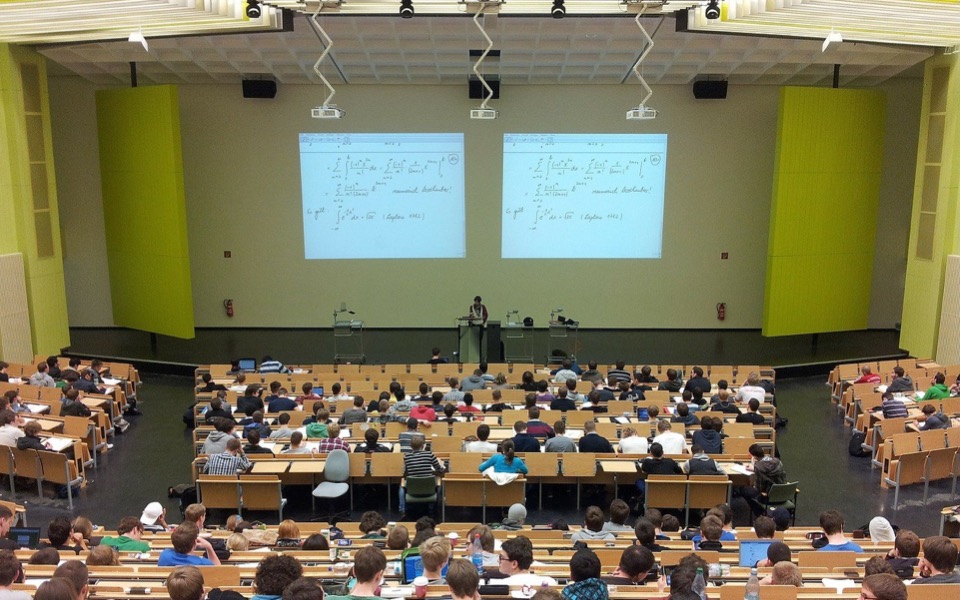Potential and perils of a university boom

To get an idea of the incredible economic potential of providing university services to foreign students it’s worth looking at an extreme example. Imagine a small territory of about 350,000 people which decides to invest hugely in universities. In three years it manages to boost the already large number of 45,000 foreign students to 100,000, who are studying at 16 universities. There are plans for another 16 to be established within the next three years. This “industry” contributes some 1 billion dollars to the local economy, a third of GDP, ahead even of tourism. The students come from 134 countries and pay about 5,000 dollars per year. Tuition is in English.
If you haven’t guessed where this educational bubble is expanding, the fact that half the students come from Turkey might help. The place is northern Cyprus. And, apart from the fact that many foreign students register in the belief that they will be studying in a member of the European Union and then find themselves in territory occupied by Turkish forces, the inflated number of universities and students creates a number of other problems not directly related to the political and legal complications.
First, it is difficult to believe that there could have been a comprehensive plan in place three years ago when such a great expansion was decided. Raising a local population of 350,000 by 100,000 puts extraordinary pressure on society at many levels – housing, traffic, waste management and so on. Whereas many students are from Turkey, Iran and the broader region, there are also many from distant countries with very different cultures. The result is that even as the money flows in, there is the risk of exploitation, tension and disappointment.
Second, it is doubtful that many of the new institutions will be able to provide a serious education. Even if they have the infrastructure, where will they find so many professors so quickly – unless, of course, the Turkish government’s pogrom on academics, with some 8,000 dismissals, might lead to many professors relocating to the occupied part of Cyprus. In any case, it must be a huge challenge to provide a worthwhile education to students who come from all kinds of school systems and do not all have the same English language skills. Britain, with its highly developed university system, sets strict standards for language and other preconditions – and even so it runs the risk of not all its teaching institutions being at the highest level.
Third, the fact that private universities are money-making machines has attracted Turkish investors. It is difficult to have absolute figures, but it appears that some of them have both casinos and universities, which gives them enormous economic power and political influence – a situation which, again, puts the local community under intense strain. In this situation, the needs of the students are the last thing on anyone’s mind.
What we need to note, despite the problems, is the success in attracting students. Most of the complications that we might see in northern Cyprus would not be so great in a larger society, where new arrivals would merge with other students – locals and foreigners. Strict legal frameworks and high educational standards would ensure a satisfactory level of studies and multiple gains for the host country. When so many students from across the world rush to universities in a breakaway state that is recognized by no country other than Turkey, we can imagine what would happen if a country such as ours were to offer educational opportunities.
For years we have discussed the benefits to Greece if it were to decide to become an international education hub. Local branches of foreign universities already attract many students, despite the problems raised by a state that does not support this very important sector. (It is estimated that foreign students are Britain’s sixth largest export sector). Any way we look at it, a serious investment in education, with English-language courses at state universities and with the establishment of high-quality, non-profit universities, would be a huge gain for Greece. Because it is not only money that we need but goodwill, too. And people who might study in Greece will be friends of Greece and the Greeks. Wherever they go afterwards.





